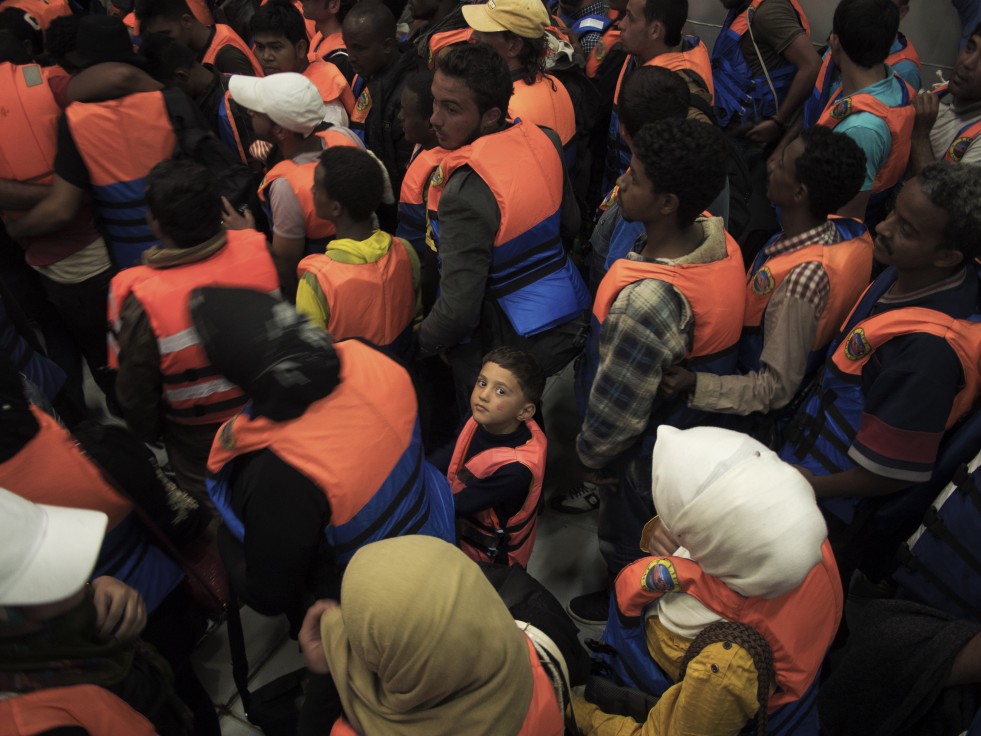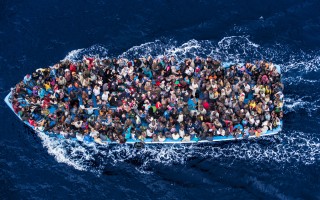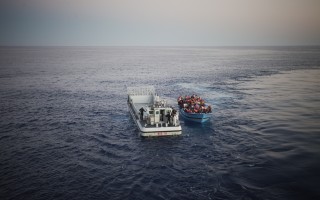There’s been a sharp increase this year in the number of migrants and asylum seekers losing their lives in attempts to get to Yemen, mainly from the Horn of Africa, with more deaths in 2014 than in the last three years combined.
In the latest tragic incident on Oct 2, 64 migrants and three crew died when their vessel, sailing from Somalia, sank in the Gulf of Aden. With five additional deaths since, this brings the number of dead this year to 215, exceeding the combined total for 2011, 2012 and 2013. It’s also the largest single loss of life since sinkings in June, when 62 people died; March, when 44 people lost their lives; and another in April, with 12 people dead.

A young boy waits to be processed with his mother. He has just spent hours at sea with hundreds of other asylum seekers, risking his life on a tiny, overcrowded fishing boat ©UNHCR/A. D’Amato
There have been frequent reports of mistreatment, abuse, rape and torture and the increasingly cruel measures being adopted by smuggling rings seem to account for the increase in deaths at sea. Boat crossings to Yemen are overcrowded, and smugglers have reportedly thrown passengers overboard to prevent capsizing or avoid detection. Search-and-rescue officials say the practice has resulted in hundreds of undocumented casualties in recent years
The reasons for the surge are believed to include ongoing drought in South-Central Somalia, as well as the combined effects of conflict, insecurity, and lack of livelihood opportunities in countries of origin. Moreover, the surge can also be attributed to a decreasing level of cooperation between the countries in the region to better manage migratory movements.
UNHCR and its partners provide initial reception and assistance to individuals arriving across the Yemeni coast at the Red Sea and the Gulf of Aden as well as record all reported incidents. UNHCR and the Society for Humanitarian Solidary provide first aid, and food assistance at 3 coastal transit centers to those identified, usually in a dire situation, by the patrolling teams upon their arrival at the coast.
By: Fiona Irvine-Goulet




